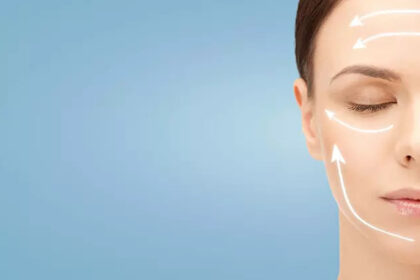In recent years, the hospitality industry has evolved far beyond providing comfortable beds, fine dining, and breathtaking views. Today’s travelers expect something deeper—peace of mind. As a result, luxury hotels worldwide are embracing a new level of guest care: on-call medical services. This growing demand reflects not just a response to global health concerns but also an acknowledgment of how health and safety now define a truly premium experience.
A Shift in Traveler Expectations
Before the pandemic, few guests gave much thought to medical support during a hotel stay. The focus was on leisure, convenience, and luxury. However, recent global health events have changed priorities. Guests now weigh cleanliness, safety, and access to medical care just as heavily as spa menus or room service.
For many international travelers, especially those visiting destinations like Dubai, New York, or Singapore, the expectation of seamless care extends to medical access. The idea that a professional can arrive within minutes to provide medical attention is no longer viewed as a luxury—it’s a necessity. This shift has encouraged top-tier hotels to integrate healthcare partnerships and build medical services directly into their hospitality offerings.
Why On-Call Medical Services Matter
Travel is unpredictable. Even the most carefully planned trip can be disrupted by sudden illness, minor injuries, or unexpected medical conditions. Having on-call doctors ensures guests don’t have to leave the comfort and privacy of their hotel room to seek medical attention.
This service has several advantages:
-
Immediate Response: Instead of navigating an unfamiliar healthcare system or searching for clinics, guests can receive help directly in their room.
-
Privacy and Discretion: High-profile travelers—celebrities, executives, and diplomats—value discretion. On-call doctors ensure their privacy is respected.
-
Reduced Stress: Medical situations can cause panic, especially in a foreign country. Having a reliable professional available on short notice eliminates anxiety.
-
24/7 Availability: Illness doesn’t follow business hours, so the availability of around-the-clock care reassures guests that help is always near.
These benefits create an environment of trust and comfort, reinforcing the reputation of luxury hotels as spaces where every detail of the guest’s well-being is considered.
The Rise of Medical Partnerships
To meet growing demand, many five-star hotels have begun forming partnerships with reputable medical providers. These collaborations bring licensed physicians, nurses, and paramedics into the hospitality ecosystem.
For instance, in Dubai—a global destination known for combining opulence with innovation—many high-end hotels now collaborate with private healthcare firms to provide round-the-clock medical services. It’s no surprise that travelers frequently search for convenience options such as a doctor at hotel Dubai, signaling just how valuable on-site care has become for guests seeking a worry-free stay.
This approach not only enhances guest satisfaction but also strengthens brand credibility. Hotels offering these services often see higher repeat bookings, better online reviews, and a stronger competitive edge in the luxury market.
Catering to Different Types of Travelers
The demand for on-call medical services spans a broad spectrum of travelers, each with unique needs.
-
Business Travelers: These guests often have tight schedules and can’t afford to waste time seeking medical care elsewhere. A quick consultation in their room means they can recover faster and get back to work.
-
Families: Parents traveling with children appreciate the assurance of having immediate access to a doctor, especially when dealing with common travel-related issues like fevers, allergies, or stomach discomfort.
-
Elderly Tourists: Older travelers may have pre-existing conditions that require ongoing monitoring or medication. On-call medical staff provide the support needed for a comfortable and safe trip.
-
Leisure Guests: Even healthy travelers can encounter unexpected problems, from food poisoning to sunburn. Having an on-site professional ensures minor issues don’t ruin a vacation.
By understanding these segments, hotels can tailor their medical offerings to meet specific needs—whether that’s a multilingual doctor, specialized equipment, or coordination with nearby hospitals.
Technology’s Role in Enhancing Care
Technology has made on-call medical services more efficient and accessible than ever. Many hotels now use digital health platforms that allow guests to request medical assistance through a mobile app or tablet provided in their room. This system can instantly connect them with nearby professionals, cutting down response times significantly.
Telemedicine is another advancement that complements in-person visits. Guests can video chat with doctors to discuss symptoms, receive advice, or get prescriptions without waiting for a physical consultation. This hybrid approach—combining remote consultations with the option for in-room visits—creates a flexible and efficient model of care.
In some cases, hotels even integrate wearable health monitoring systems or AI-based wellness tools that can alert staff to potential health concerns before they escalate. This proactive use of technology positions luxury hotels as not just places of comfort, but as environments that actively safeguard guest well-being.
Health as a Core Part of Luxury
The definition of “luxury” is changing. It’s no longer just about gold-plated fixtures or extravagant suites. True luxury now lies in personalization, safety, and peace of mind. A hotel that can provide immediate, professional healthcare demonstrates a level of attentiveness that sets it apart.
Consider how high-end brands are already reshaping this experience:
-
Wellness Rooms: Equipped with air purifiers, ergonomic bedding, and fitness equipment.
-
In-Room Diagnostics: Some hotels offer devices that measure blood pressure, oxygen levels, and other vital signs.
-
Customized Nutrition: Collaborations with nutritionists allow guests to tailor their meals according to dietary requirements or health goals.
These innovations complement the availability of on-call medical care, creating a comprehensive wellness ecosystem that appeals to today’s discerning traveler.
Challenges in Implementation
Despite its advantages, integrating medical services into hospitality isn’t without challenges. Hotels must navigate local regulations, maintain medical confidentiality, and ensure that professionals are properly licensed and trained.
Cost is another consideration. Maintaining 24-hour medical availability involves partnerships, staff training, and investment in equipment. However, the long-term benefits often outweigh these costs, as guest trust and satisfaction can translate directly into brand loyalty and revenue growth.
The Dubai Model of Health-Driven Hospitality
Dubai offers a strong example of how cities can blend world-class hospitality with top-tier healthcare. With its reputation as a hub for both tourism and business, Dubai attracts millions of international visitors each year. Its hotels have responded by integrating health-focused features, from in-house clinics to wellness retreats.
Many luxury hotels now promote health and safety as central to their guest experience. They provide multilingual medical staff, personalized wellness consultations, and fast coordination with nearby hospitals if specialized care is needed. This level of preparedness reinforces Dubai’s image as a city that values guest comfort in every possible way.
What Guests Can Expect in the Future
The trend toward on-call medical services is only going to grow. Future hotel experiences will likely include:
-
AI-Driven Health Monitoring: Smart systems that track guest well-being and detect irregularities.
-
Integrated Health Records: Secure systems allowing doctors to access and update guest health data for more accurate care.
-
Preventive Wellness Programs: Hotels may offer medical screenings and consultations as part of luxury packages.
-
Partnerships with Global Health Brands: Collaborations with internationally recognized hospitals and clinics will make medical tourism more seamless.
In essence, medical care will become an integral part of the guest journey—from booking to checkout.
Final Thoughts
The rise of on-call medical services in luxury hotels represents a meaningful shift in how we define comfort and care. It’s a reflection of a world where wellness and safety have become as valuable as elegance and exclusivity. For modern travelers, knowing that professional medical help is only a phone call away offers reassurance that no luxury amenity can replace.
As more hotels adopt this model, they’re not just responding to demand—they’re setting a new standard for hospitality itself. The future of luxury travel lies in this blend of comfort, innovation, and compassionate care, where guests are not only pampered but protected.

